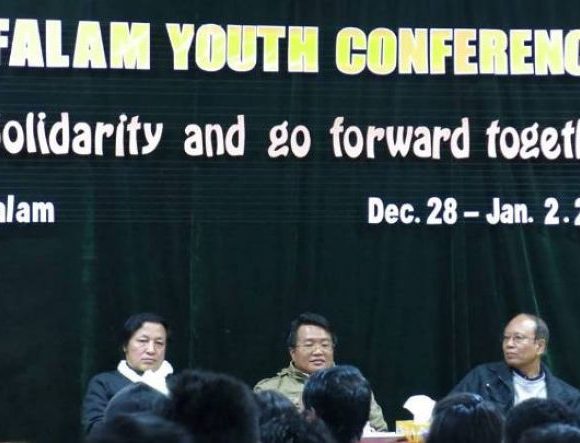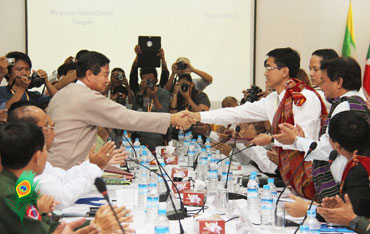When a ‘just cause’ brings immense human suffering

By Salai Van Cung Lian
As the five year armed conflicts in Chin State Paletwa intensified and horrific accounts of civilian deaths and suffering keep emerging, it is no surprise that many young Chins are increasingly feeling angry and getting fed up with the gross injustices being inflicted on their fellowmen and women each passing day.
For many of the young people, the complex and extraordinary nature of a war being fought between two outsiders in our own homeland poses the question as to who a friend or foe is. Demands for accountability, no matter who the perpetrators in the war, seem to the dominating theme among the Chin youths.
War normally starts when a community’s existence is being threatened, and it is justified by that for many thinkers. In a situation of being threatened, people think war is morally permissible, or even necessary for a “just cause.” Therefore, it is plausible to say that it is not strange for people to think that there is nothing wrong with fighting for a good and just cause.
Nonetheless, what determines what is a just cause in a way that war is morally permissible will still remain unanswered, and questionable even if answered.
People ought to think if war could ever be just at all. However, we are unlikely to get an answer that will satisfy everyone. Basically justifying war as a “just cause” could be misleading because a “just cause” as the reason that justifies war is often the reason that causes a war with immense and terrifying human suffering. War seems to have never been just or minimize suffering.
Regardless of our moral position about war, not avoiding the suffering of civilians in war-zone and intentionally targeting civilians is something that armed actors ought not to do. Looting properties that belong to civilians, forcefully displacing civilians, force-disappearance of civilians, intentionally targeting civilians, and even fighting near civilians’ shelters or homes ought not to be permissible, and is all morally wrong. To make it clear and concise, a war that threatened the livelihood of civilians is not permissible for any reason. Let them live their lives and be safe.
Civilians are suffering but, apparently, the government, as well as the parliament, is not taking enough action either against the war itself or for war-affected people. Government’s inaction against war, not denouncing war, seems to have produced a different way of thinking about the government and parliament. Is that the government itself that is at war with the people? Are the government officials or political leaders really ignorant of the war happening around them?
The way many young people think about war in Chin State is clear. As the number of civilians dying in war-zone increases, they are understandably thinking that staying at home on account of COVID-19 is not a history they would like to write in this kind of uncertain situation. Then, what could possibly come next? Should it be another war with our foes or with friends?
In this difficult and enormously uncertain situation, Chin people don’t have many options. It is clear enough. There are essentially two options: take a diplomatic path to help find a solution to the suffering of civilians that would, in any way, minimize harm. Or to take matters into their own hands by taking up arms and fight back that would, in any way, maximize harm. But this choice is not simple enough for many people.
About Author
Salai Van Cung Lian is a researcher based in Hakha, Chin State, Myanmar. He works as Principal for Victoria Academy, a community school, and as Strategic Partnership Advisor for Chinbridge Institute (Center for Research and Social Studies).





